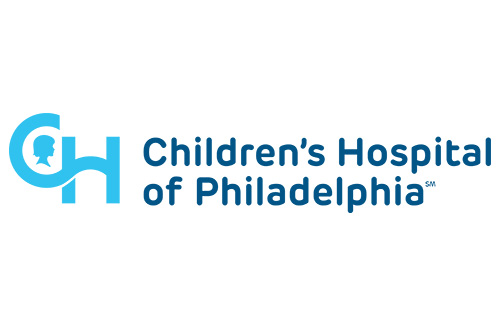Law enforcement provides critical community services, yet Black autistic youth often face elevated risk of negative outcomes during police interactions. In an effort to learn more about these encounters within the autistic community, researchers at the Center for Autism Research at Children’s Hospital of Philadelphia (CHOP) conducted a study to examine perceptions and concerns of Black caregivers of Black autistic children regarding police interactions. The findings, published online today by the journal Autism, revealed important changes that could be made to improve the quality of interactions between police and Black autistic youth.
Autistic individuals face elevated risk of negative outcomes during interactions with the police, including greater risk of injury and death. Black autistic youth are at even higher risk given increased police contact and documented use of force towards the Black community compared with other racial subgroups. Black parents and caregivers are aware of this risk but are seldom included in research efforts that shape police training as well as interventions designed to improve autistic civilians’ police interaction skills.
Prior research has explored perspectives and concerns about policing through the lens of autistic adults and caregivers of autistic children, but no prior published study has exclusively explored Black caregivers’ concerns about policing Black autistic children. To better understand specific concerns about policing and opportunities within this community, researchers conducted a qualitative study.
“In addition to the historical stigma attached to research participation, Black families don’t readily participate in research because their voices and lived experiences are not always heard or prioritized,” said the study’s lead author Ashlee Yates Flanagan, PhD, research psychologist at the Center for Autism Research. “By making these families the focus of our study, we want them to know that their voices are being heard, and that what they tell us provides important next steps for implementing meaningful change.”
In this study, researchers analyzed the perspectives of 43 Black caregivers of Black autistic children regarding police interactions with their autistic children. The study focused on the cultural experience of Blackness in all aspects, from the mindful inclusion of researchers from underrepresented backgrounds – and Black caregivers of Black autistic children as authors – to the documented frequent discourse between the study’s authors about race and racism in American policing.
Four themes that emerged during the study were parental concerns regarding the quality of police officers’ training, children’s normal autistic behaviors being inappropriately policed, the explicit threat of harm and murder, and the hope for more mindful policing. Families in the study worried that police officers might over-react to movements and responses that are typical of autistic youth but might differ from their peers. This includes behaviors such as reduced eye contact, which might be regarded as a sign of guilt in the context of a crime yet could also be average behavior for someone with autism.
Many families expressed hope that targeted training could help police recognize these differences in behavior, and that patience and understanding could improve interactions between police and Black autistic youth.
“It’s important for everyone to understand that the parents in this study said they were hopeful, which we interpreted as Black caregivers’ faith that interactions between officers and Black autistic youth could be better,” Yates Flanagan said. “This demonstrates that there’s space for improvement in training, and we can take what we know from this study and explore it further.”
This study highlights the importance of including racially and ethnically diverse individuals in research that explores policing and underscores the need for culturally responsive adaptations within police training efforts designed for autistic people. Future police training efforts should carefully integrate Black caregivers’ concerns about law enforcement, with the goal of improving outcomes for all parties.
“In this study, we captured rich narratives from stakeholders who have not been represented well in prior research, but whose thoughts and perspectives are critical for understanding how to improve outcomes for Black autistic youth and police,” said senior study author Julia Parish-Morris, PhD, a scientist in the Center for Autism Research and Associate Professor in the Perelman School of Medicine at the University of Pennsylvania. “Our findings suggest that there is a lot of room for growth in training for police officers, and that Black parents of Black autistic youth carry hope that outcomes can be improved.”
This study was supported by NIH (R42MH115539-S1 and P50HD105354), the Intellectual and Developmental Disabilities Research Center (IDDRC) at CHOP/Penn, and the McMorris Family Foundation.
Yates Flanagan et al, “Policing Black Autistic Children: A Qualitative Approach to Understanding Black Caregivers’ Concerns.” Autism. Online December 16, 2024. DOI: 10.1177/13623613241303549.
About Children’s Hospital of Philadelphia:
A non-profit, charitable organization, Children’s Hospital of Philadelphia was founded in 1855 as the nation’s first pediatric hospital. Through its long-standing commitment to providing exceptional patient care, training new generations of pediatric healthcare professionals, and pioneering major research initiatives, the hospital has fostered many discoveries that have benefited children worldwide. Its pediatric research program is among the largest in the country. The institution has a well-established history of providing advanced pediatric care close to home through its CHOP Care Network, which includes more than 50 primary care practices, specialty care and surgical centers, urgent care centers, and community hospital alliances throughout Pennsylvania and New Jersey, as well as the Middleman Family Pavilion and its dedicated pediatric emergency department in King of Prussia. In addition, its unique family-centered care and public service programs have brought Children’s Hospital of Philadelphia recognition as a leading advocate for children and adolescents. For more information, visit https://www.chop.edu.
Read Press Release via EurekAlert











